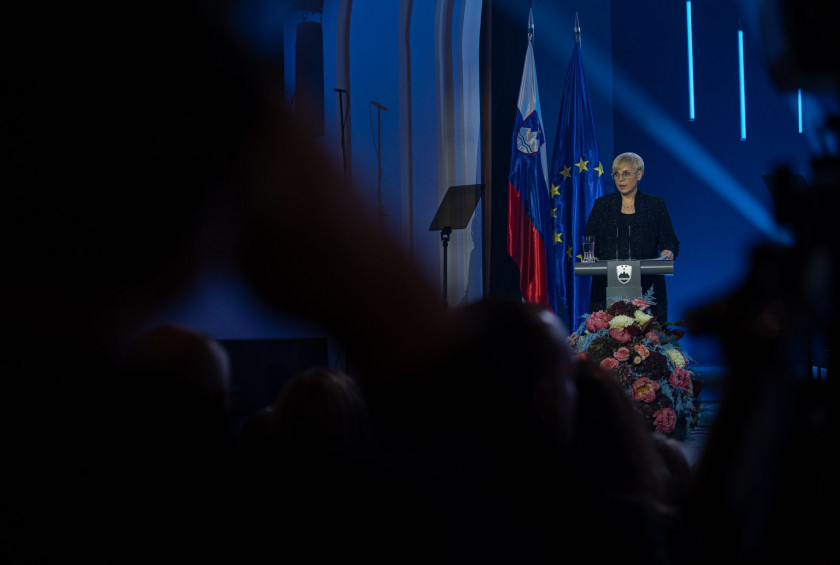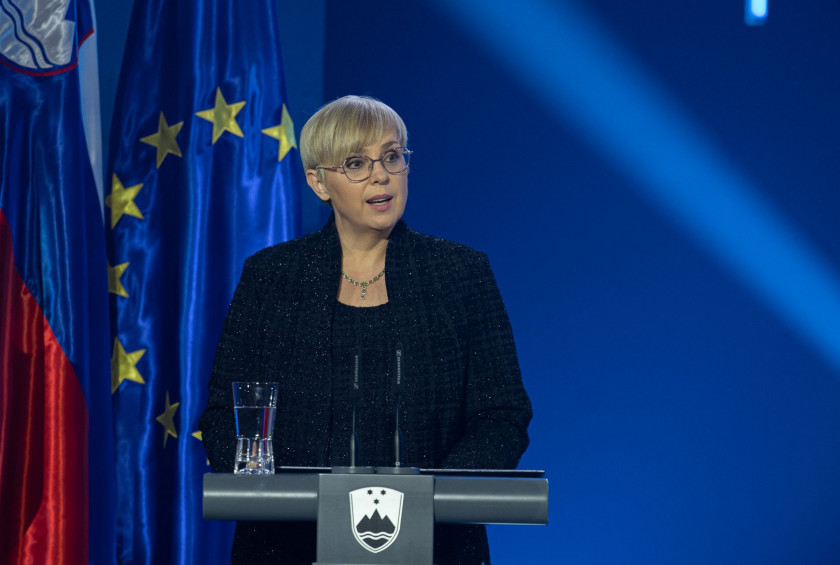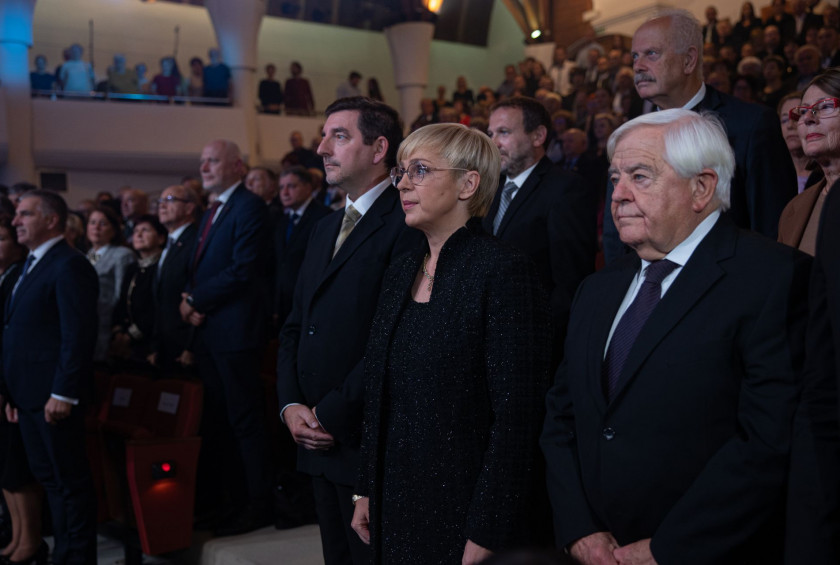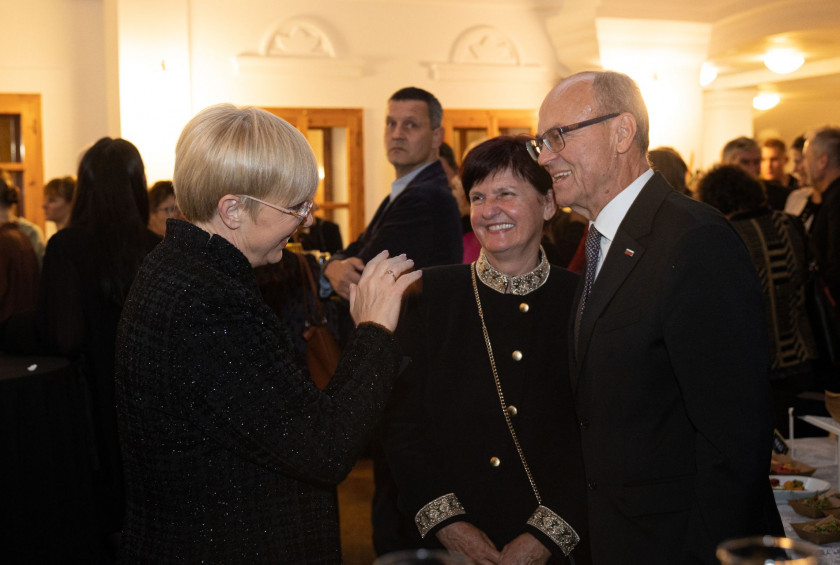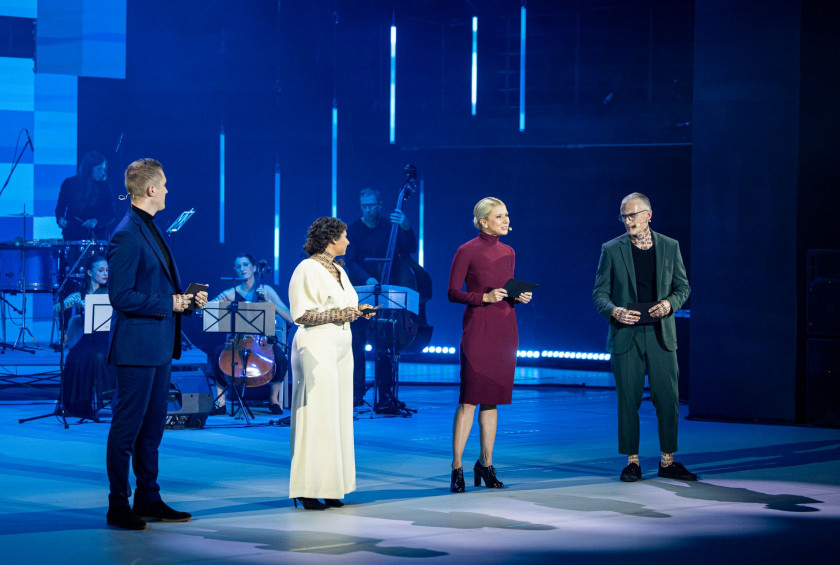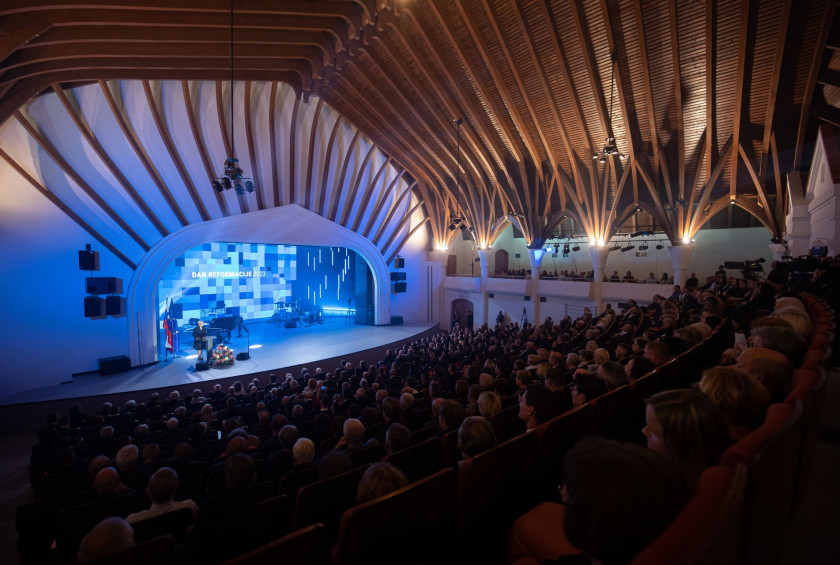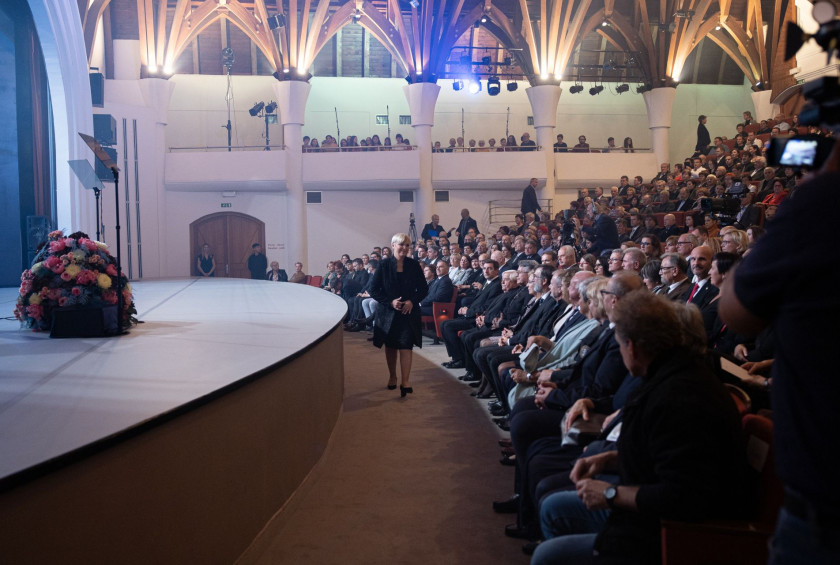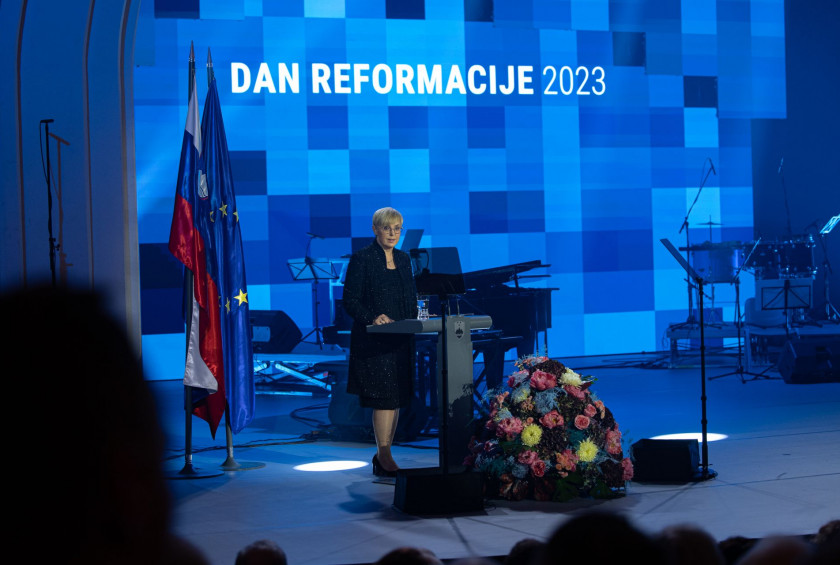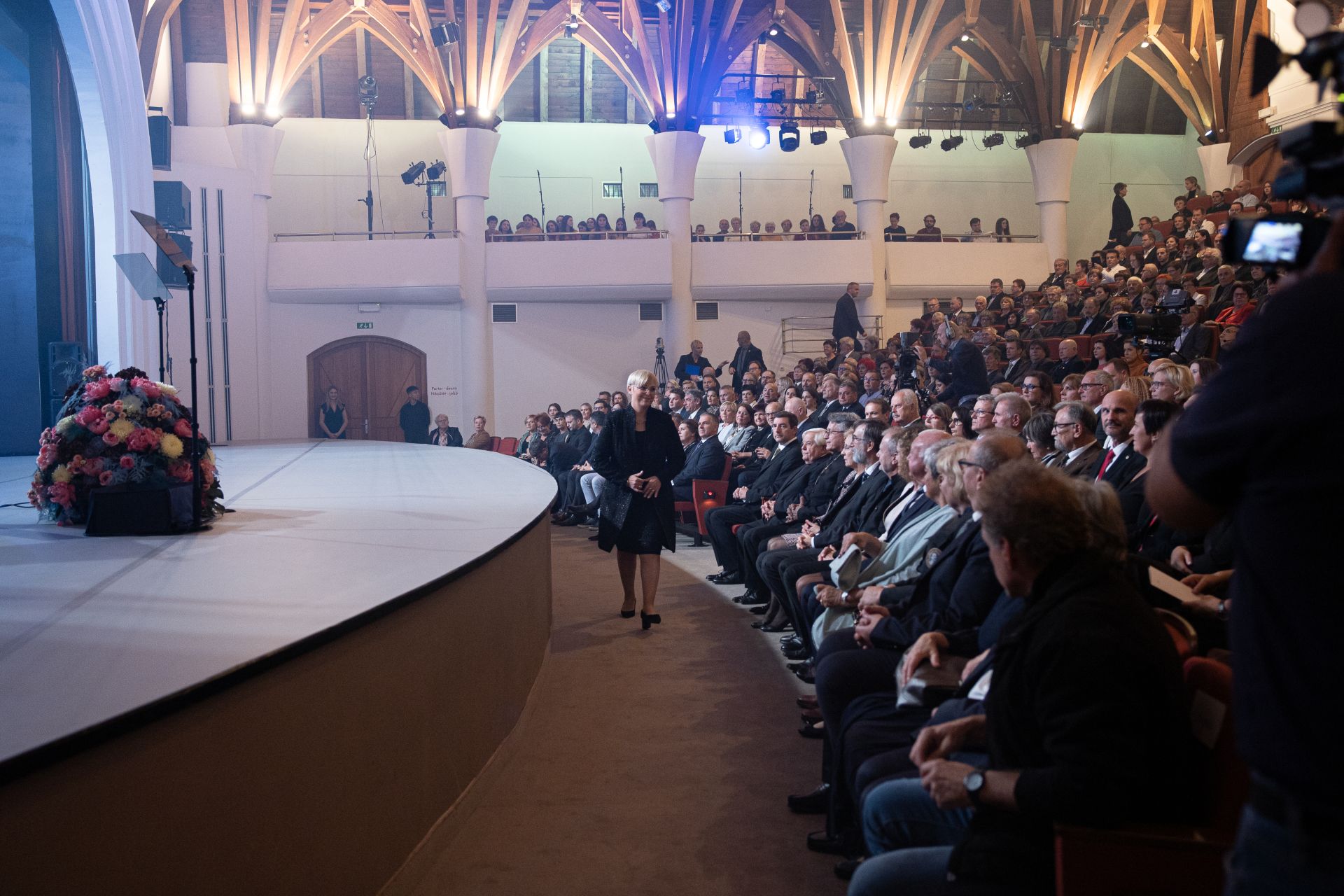
Photo: Katja Kodba/Slovenian Press Agency
The everyday battle for democracy, justice and equality is what will allow us to "stand and withstand" in the future
The President of the Republic of Slovenia, Nataša Pirc Musar, was the keynote speaker at the state celebration on the occasion of Reformation Day. In her address, she stressed the importance of Protestantism and the Reformation for the development of the Slovenian identity, as well as the ethical conduct of society and cooperation in democratic processes in relation to modern challenges such as the management of artificial intelligence.
Lendava, 30 Oct 2023
News
In her keynote address, the President of the Republic initially highlighted the prominent role of Slovenian Protestantism and the Reformation, which went beyond that of a religious movement. In this period, Primož Trubar first addressed us with the words "Dear Slovenians", establishing a connection that still holds true today: Slovenians are a community defined by our language rather than the delineation of a territory. It was then that Slovenians got our standard language, literature and grammar, our Church, a secular education system, and our first public library. President Pirc Musar also evoked the words of Oto Norčič, the first President of the Slovenian Protestant Society Primož Trubar, proclaiming the movement’s greatest contribution to be the shaping of a sense of belonging among the people of Prekmurje as a distinct ethnic group.
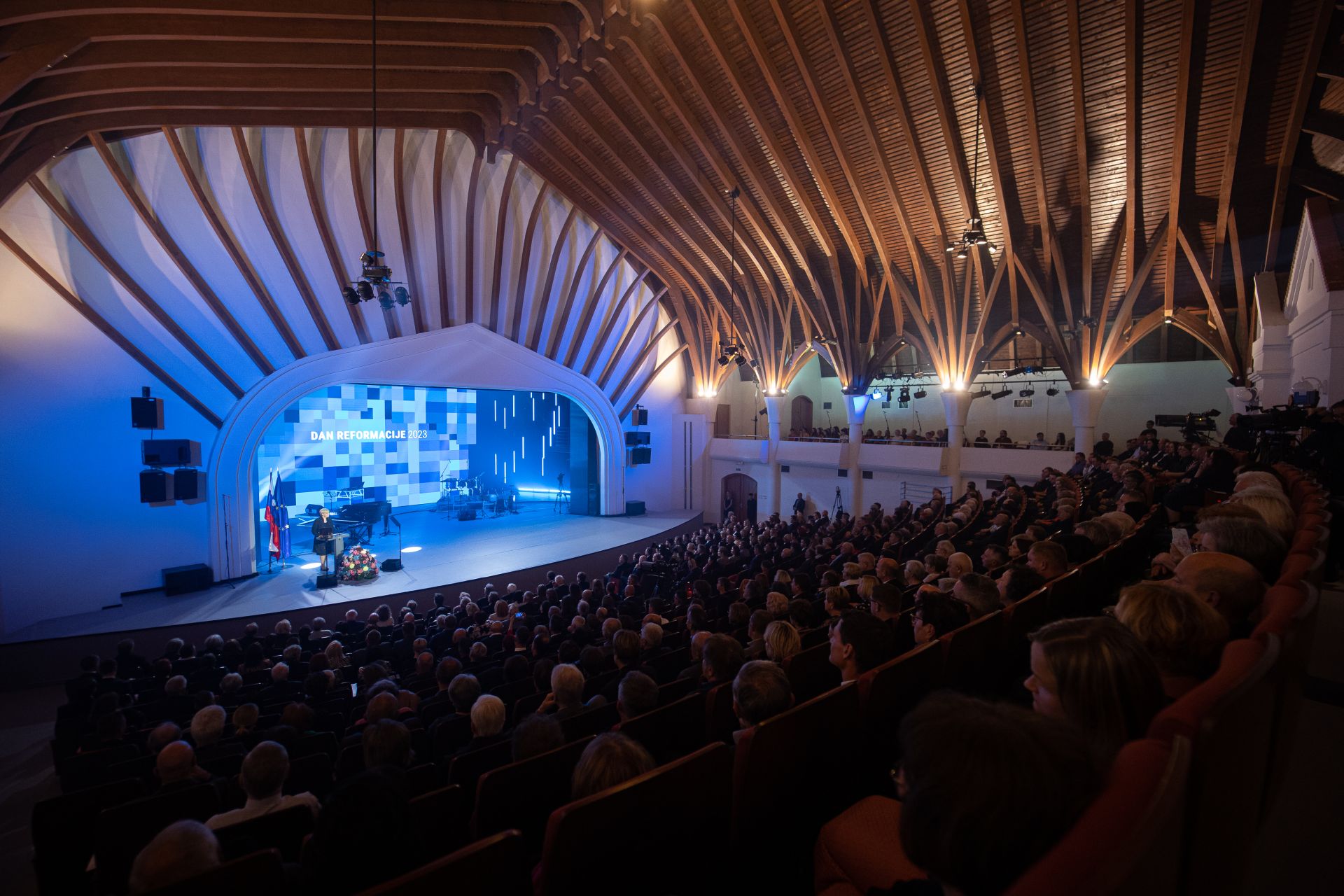
Protestantism and the Reformation also gave us the first Slovenian translation of the Bible, "the Dalmatin Bible", which allowed the Slovenian language to take a leap from short texts and books to a linguistic accomplishment that only some ten languages had managed before. "It cemented Slovenian literacy as a historical fact, regardless of the religious disputes and conflicts during the Counter-Reformation," she said, adding that the perception of literacy in society as a given was inaccurate.
According to the President, the self-evidence of literacy in the digital age is questionable, and the ubiquity of artificial intelligence poses another unique challenge. What happens "mostly depends on us and our conscious decisions about its development and implementation," she said, stressing the importance of adopting the appropriate relevant legislation, with the EU setting an example for other countries around the world.
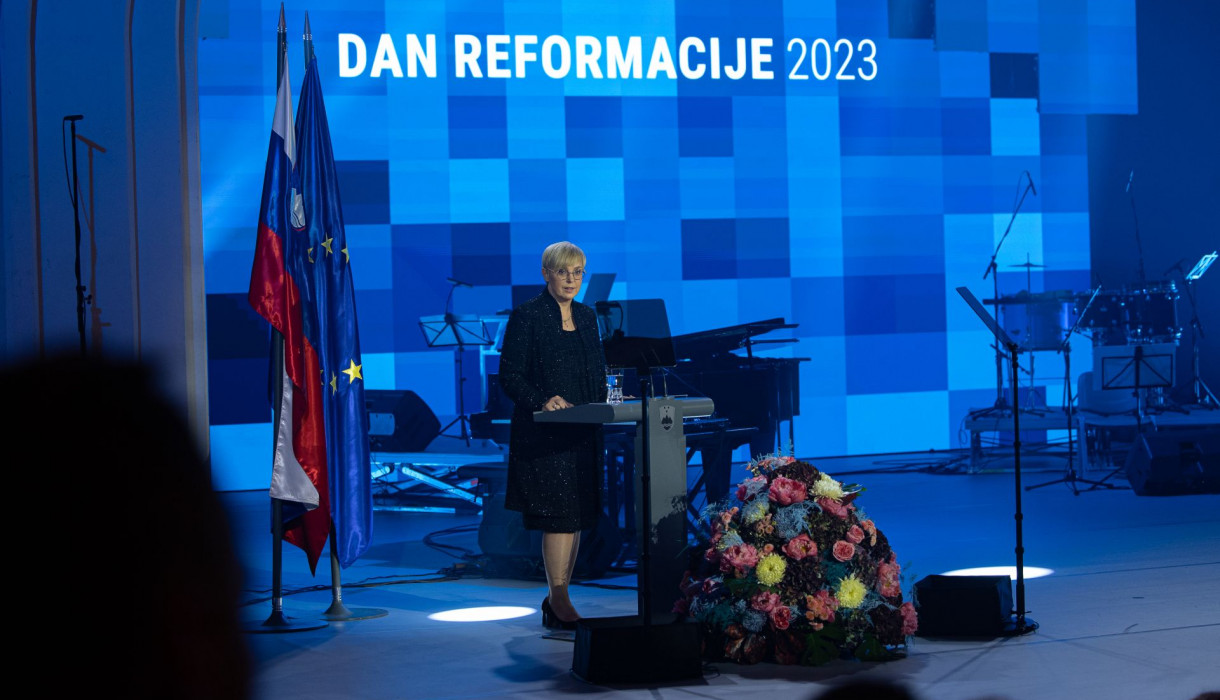
"Knowledge is not a guarantee for ethical behaviour. Artificial intelligence is only as ethical as its developers, which also depends on the ethical rules imposed on them by society. And the knowledge on which decision-making is based, in the case of both artificial intelligence and people, depends on the quality of resources that they learn from. When it comes to people, it also depends on their learning ability, which is not to be taken for granted," said President Pirc Musar.
The President closed her keynote address by saying that the everyday battle for democracy, justice and equality is what will allow us to "stand and withstand" in the future. According to the President, only informed and thinking citizens can participate actively in democratic processes and ensure that politics does not overstep the boundaries of what is allowed. It is not enough just to go out and vote every once in a while – every democratic society requires a constant critical eye on the actions of its leaders.
The artistic programme entitled "Language, Books and Artificial Intelligence" paid special attention to the 300th anniversary of the birth of Štefan Küzmič, a teacher and Protestant priest, who translated the New Testament from Greek into Wendish, the language of Prekmurje, at the end of the 18th century, publishing his translation in the book Nouvi Zákon, which facilitated the expansion of printing and the flourishing of literary, scientific, journalistic and religious creativity in Prekmurje. Wendish had shown itself to be an equal and sovereign expression of language, having developed at that time from a vernacular into a proper literary language.


